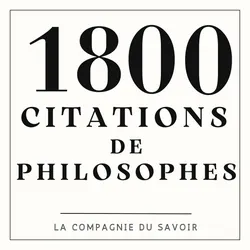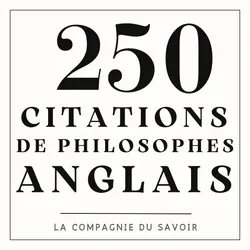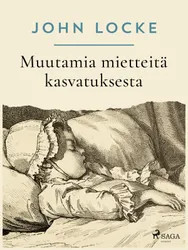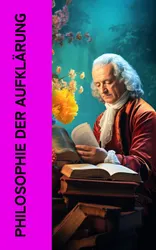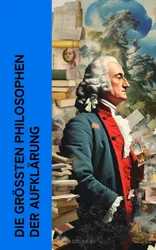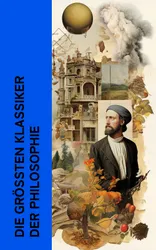John Locke's "Of the Conduct of the Understanding" serves as a profound exploration of the principles governing human thought and knowledge. Written in a distinctly empirical style, Locke meticulously outlines the processes of understanding, emphasizing the importance of clear definitions and the avoidance of ambiguity. Situated within the context of 17th-century rationalism and the burgeoning Age of Enlightenment, this work reflects Locke's commitment to reason as a means to acquire true knowledge, ultimately guiding readers towards a more disciplined approach to thought and intellectual inquiry. As one of the most influential philosophers of his time, John Locke's views were deeply shaped by his background in medicine and natural philosophy. His experience in studying human cognition led him to advocate for a systematic approach to understanding, free from the constraints of dogmatic thinking. This work, like much of Locke's oeuvre, resonates with his belief in the transformative power of education and the need for individuals to cultivate their intellectual faculties. For readers seeking to enhance their critical thinking skills, "Of the Conduct of the Understanding" is an essential text. Locke's clear, cogent arguments provide invaluable tools for navigating the complexities of thought, making this work a vital resource for philosophers, educators, and anyone interested in the foundations of human understanding.
Of the Conduct of the Understanding
Starten Sie noch heute mit diesem Buch für 0 €
- Hole dir während der Testphase vollen Zugriff auf alle Bücher in der App
- Keine Verpflichtungen, jederzeit kündbar
Autor*in:
Sprache:
Englisch
Format:
50 Meisterwerke der Philosophie : Metaphysik, Das Gastmahl, Bhagavadgita, Tractatus logico-philosophicus, Kritik der reinen Vernunft, Also sprach Zarathustra, Selbstbetrachtungen von Marcus Aurelius
Ludwig Wittgenstein, Edmund Husserl, Karl Marx, Søren Kierkegaard, Friedrich Nietzsche, Ralph Waldo Emerson, John Stuart Mill, Georg Wilhelm Friedrich Hegel, Friedrich Schelling, Johann Gottlieb Fichte, Immanuel Kant, John Locke, Montesquieu, Jean-Jacques Rousseau, David Hume, Gottfried Wilhelm Leibniz, Baruch Spinoza, - Konfuzius, Lao Tse, Platon, Xenophon, - Aristoteles, Marcus Tullius Cicero, Seneca, Epiktet, Marc Aurel, Plotin, Thomas von Aquin, Nicolaus von Cues, - Erasmus von Rotterdam, Niccolò Machiavelli, Tommaso Campanella, Martin Luther, Giordano Bruno, Samuel von Pufendorf, Abbé Castel de Saint-Pierre, Michel de Montaigne, René Descartes, Francis Bacon, Blaise Pascal
book50 citations de John Locke
John Locke
audiobook1800 Citations de philosophes
Aristote, Épicure, Platon, Thalès de Milet, – Socrate, Protagoras, Anaximandre, Épictète, Héraclite, Marc Aurèle, René Descartes, Michel de Montaigne, Alexis de Tocqueville, Voltaire, Charles De Montesquieu, Jean-Jacques Rousseau, Emmanuel Kant, Hannah Arendt, Gottfried Wilhelm Leibniz, Georg Wilhelm Friedrich Hegel, Friedrich Nietzsche, Arthur Schopenhauer, David Hume, John Locke, Francis Bacon, Thomas Hobbes, Thomas More, Confucius, Érasme, Lao Tseu, Baruch Spinoza, Søren Kierkegaard, Nicolas Machiavel, Thomas d'Aquin, Henry David Thoreau
audiobook250 citations de philosophes anglais
David Hume, John Locke, Francis Bacon, Thomas Hobbes, Thomas More
audiobookAn Essay Concerning Human Understanding (Vol. 1) : Exploring Empiricism and the Philosophy of Mind by John Locke
John Locke
bookMuutamia mietteitä kasvatuksesta
John Locke
bookPhilosophie der Aufklärung : Die wichtigsten Werke von Immanuel Kant, John Locke, Rousseau, Voltaire, Denis Diderot, David Hume, Leibniz, Johann Gottfried Herder
Johann Gottfried Herder, Montesquieu, David Hume, Denis Diderot, Jean-Jacques Rousseau, John Locke, Thomas Hobbes, Benjamin Franklin, Francis Bacon, Immanuel Kant, Baruch Spinoza, Isaac Newton, Freiherr Gottfried von Leibniz, Voltaire, René Descartes
bookDie größten Philosophen der Aufklärung : Neues Organon, Kritik der reinen Vernunft, Der Gesellschaftsvertrag, Candide, Monadologie, Mathematische Principien der Naturlehre
Jean-Jacques Rousseau, Voltaire, Denis Diderot, David Hume, Johann Gottfried Herder, John Locke, Thomas Hobbes, Benjamin Franklin, Francis Bacon, Immanuel Kant, Montesquieu, Baruch Spinoza, Isaac Newton, Freiherr Gottfried von Leibniz, René Descartes
bookDie Philosophie des Geistes : Bereicherte Ausgabe. Entdecken Sie Lockes faszinierende Analyse des menschlichen Verstandes und die Natur des Bewusstseins in dieser bahnbrechenden philosophischen Arbeit
John Locke
bookGesammelte Werke von John Locke : Bereicherte Ausgabe. Brief über die Toleranz + Ein Versuch über den menschlichen Verstand + Gedanken über Erziehung
John Locke
bookDie größten Klassiker der Philosophie : Also sprach Zarathustra, Utopia, Phänomenologie des Geistes, Neues Organon, Selbstbetrachtungen, Das Gastmahl, Nikomachische Ethik
Immanuel Kant, Søren Kierkegaard, Edmund Husserl, Ludwig Wittgenstein, Friedrich Nietzsche, - Konfuzius, Platon, Xenophon, - Aristoteles, Lao Tse, Marcus Tullius Cicero, Marcus Aurelius, Plotin, Thomas von Aquin, Niccolò Machiavelli, Thomas Morus, Giordano Bruno, Michel de Montaigne, René Descartes, Francis Bacon, Blaise Pascal, Baruch Spinoza, Gottfried Wilhelm Leibniz, David Hume, Jean-Jacques Rousseau, Friedrich Schelling, John Locke, Georg Wilhelm Hegel, John Stuart Mill, Karl Marx
bookMeisterwerke der Weltphilosophie : Das Gastmahl, Nikomachische Ethik, Also sprach Zarathustra, Utopia, Phänomenologie des Geistes, Neues Organon, Selbstbetrachtungen
Immanuel Kant, Søren Kierkegaard, Edmund Husserl, Ludwig Wittgenstein, Friedrich Nietzsche, - Konfuzius, Platon, Xenophon, - Aristoteles, Lao Tse, Marcus Tullius Cicero, Marcus Aurelius, Plotin, Thomas von Aquin, Niccolò Machiavelli, Thomas Morus, Giordano Bruno, Michel de Montaigne, René Descartes, Francis Bacon, Blaise Pascal, Baruch Spinoza, Gottfried Wilhelm Leibniz, David Hume, Jean-Jacques Rousseau, Friedrich Schelling, John Locke, Georg Wilhelm Hegel, John Stuart Mill, Karl Marx
book



